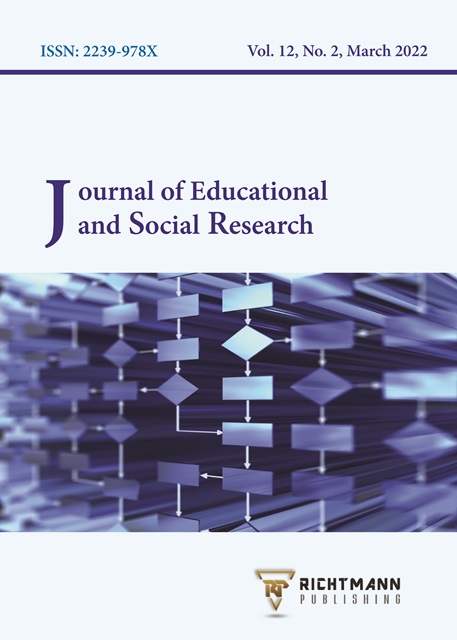Consideration of Individual Differences: Activation vs. Inactivation
DOI:
https://doi.org/10.36941/jesr-2022-0053Keywords:
individual differences, activation, inactivationAbstract
The present research threw light on a number of issues related to personalization. Furthermore, an attempt was made to cast light on some wrong practices performed by teachers in their classes that negatively influence the educational process and compromise individual differences. In order to answer the research’s questions and yield results, the qualitative descriptive method was employed. Having reviewed the theoretical literature, the effective way of considering individual differences was revealed. Moreover, having interviewed 20 teachers, I found the factors leading teachers to make errors regarding personalization, causing the latter not to accrue benefits. Accordingly, teachers were categorized in three groups: First: Teachers who do not perform what they disbelieve in, causing the practices not to accrue any benefits; Second: Teachers who are immersed in normative practices but ignore benefits; and Third: Teachers who consciously consider individual differences, as well as study and analyze students’ patterns but increase rather than decrease those differences. Furthermore, appropriate solutions were presented to address those errors and to reach useful practices regarding personalization. Based on the results, a number of suggestions and recommendations were given which could help address personalization-related problems. Real observations, scientific discussions and long conversations were objectively made with a number of teachers. Whatever presented in this study was based on my observation from teachers’ plans and some of their courses. I also monitored students’ development and academic achievement. Over our discussions, teachers frequently asked “what is the problem?!” They put the blame on learners and sporadically on the social environment in which students grew up. They also sometimes considered families to be accountable in this regard. Rarely ever can a wise teacher be found to attribute the problem to his method and thus make systematic and insightful, not experiential and arbitrary, evaluation and correction. Furthermore, an effective teacher assumes full responsibility for his work and knows his class is part of a larger society. Therefore, he or she should not expect the best in everything, but he or she should let their holy profession alone create a perfect society. The more a teacher notches success and be sincere in his or her work, the closer we will be to a mature, effective and productive society, though the teacher may not realize that. Finally, I would emphasize we must change our expectations before our practices or our changes will accrue no benefits. Moreover, we must determine our needs in such a way that suit our students. We should not imitate others’ practices without understanding how effective they will be in our classes and their current circumstances. Most importantly, a student should feel he or she is really actualizing himself or herself at any moment, and is acquiring new knowledge and skills after each class.
Received: 19 October 2021 / Accepted: 31 December 2021 / Published: 5 March 2022
Downloads
Downloads
Published
Issue
Section
License

This work is licensed under a Creative Commons Attribution-NonCommercial 4.0 International License.
This work is licensed under a Creative Commons Attribution-NonCommercial 4.0 International License.









